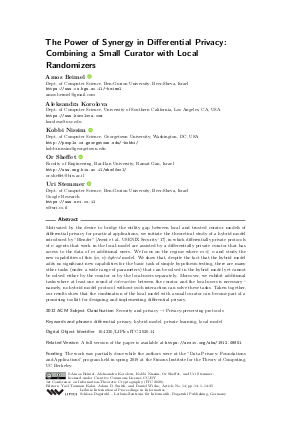LIPIcs.ITC.2020.14.pdf
- Filesize: 0.88 MB
- 25 pages

 Creative Commons Attribution 3.0 Unported license
Creative Commons Attribution 3.0 Unported license
























Feedback for Dagstuhl Publishing